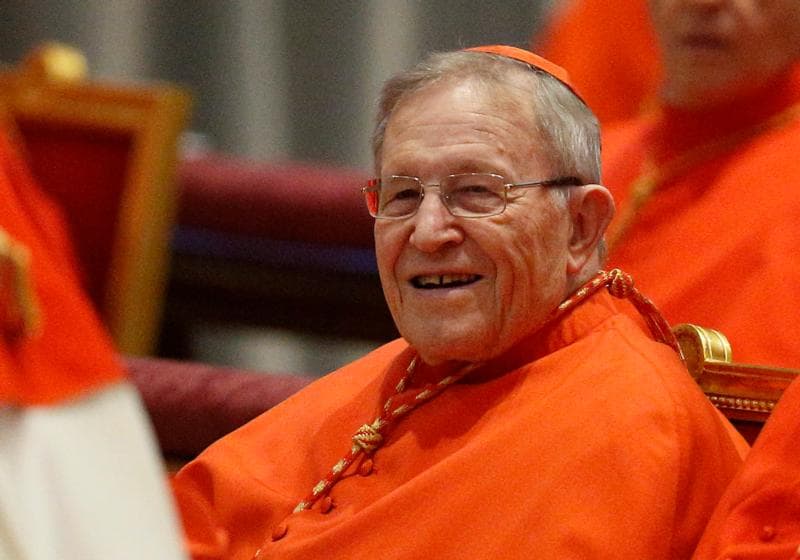ROME – German Cardinal Walter Kasper, considered a close theological adviser to Pope Francis, said that if during an upcoming meeting of bishops on the Amazon region the prelates asked for the ordination of married men, the Argentine pontiff would grant the request.
He also said that the ordination of women, even to the diaconate, is out of the question, as it would undermine a “millennia old tradition,” noting, however, that the Catholic Church would “collapse” without women.
“If the bishops agreed through mutual consent to ordained married men – those called viri probati – it’s my judgement that the pope would accept it,” said Kasper, former president of the Vatican’s Council for the Promotion of Christian unity. “Celibacy isn’t a dogma, it’s not an unalterable practice.”
“Personally, I’m very much in favor of maintaining celibacy as an obligatory way of life with a commitment to the cause of Jesus Christ, but this doesn’t exclude that a married man can carry a priestly service in special situations,” Kasper said.
The question of ordaining married men could be discussed during the Synod of Bishops on the Amazon, that will take place this October in Rome.
Francis addressed the issue of possibly ordaining married men at length in January, during the in-flight press conference on the way back to Rome from Panama.
“I would rather give my life than to change the law on celibacy,” Francis said, quoting St. Paul VI, who as the Argentine pontiff noted, was speaking “when times were tougher than now, in 1968-1970.”
“I’m not in agreement with allowing optional celibacy. No,” he said.
Francis did add, however, that he believes theologians should study the possibility of “older married men” being ordained, in “far, faraway places,” such as the islands in the Pacific, but even then, ordained only to celebrate Mass, hear confessions and anoint the sick.
The pope cited Bishop Fritz Lobinger from South Africa, who’s written on this issue. Yet, he insisted, this is a matter to be “prayed on” and discussed by theologians, and one he personally hasn’t meditated on enough.
“It’s not for me to decide. My decision is, optional celibacy before the diaconate, no,” referring to the fact that future priests typically are first ordained as deacons. “I will not do this. I don’t feel like standing in front of God with this decision,” Francis said.
Speaking in particular about female deacons, Kasper said that women today do “ten times more than what female deacons did” as they were described in the Bible.
Francis instituted a commission in 2016 to look into the historical role women deacons had in the early church. The result of their study, according to the pontiff, is so far inconclusive.
RELATED: Women deacons debate shows usefulness of commissions in keeping things ‘unresolved’
“On the basis of the New Testament, there’s an uninterrupted tradition not only in the Catholic Church but in all the churches of the first millennium, according to which ordination and consecration are reserved only to men,” Kasper said in his interview with the German newspaper Frankfurter Rundschau, which was also posted on the website of the German bishops’ conference.
He also said that, despite the fact that there’s “little movement” right now on the matter of ordaining women to the diaconate, women are doing a lot in the Church, and the institution has to do a better job at acknowledging that without their work, any diocese or parish would “collapse tomorrow.”
“It seems to me that it’s more important that today, women- pastoral assistants, ministers, teachers, Caritas workers, catechists, doing theology and in administrative roles – do tenfold the things the female deacons did,” he said.
The Church, Kasper continued, must answer to women’s “legitimate” requests for a more leading role and “give these steps as quickly as possible.” However, he also said that the solution cannot be the so-called Eucharistic strikes, such as the German “Maria 2.0,” that called for women to stay away from church for a week in May.
Follow Inés San Martín on Twitter: @inesanma
Crux is dedicated to smart, wired and independent reporting on the Vatican and worldwide Catholic Church. That kind of reporting doesn’t come cheap, and we need your support. You can help Crux by giving a small amount monthly, or with a onetime gift. Please remember, Crux is a for-profit organization, so contributions are not tax-deductible.












